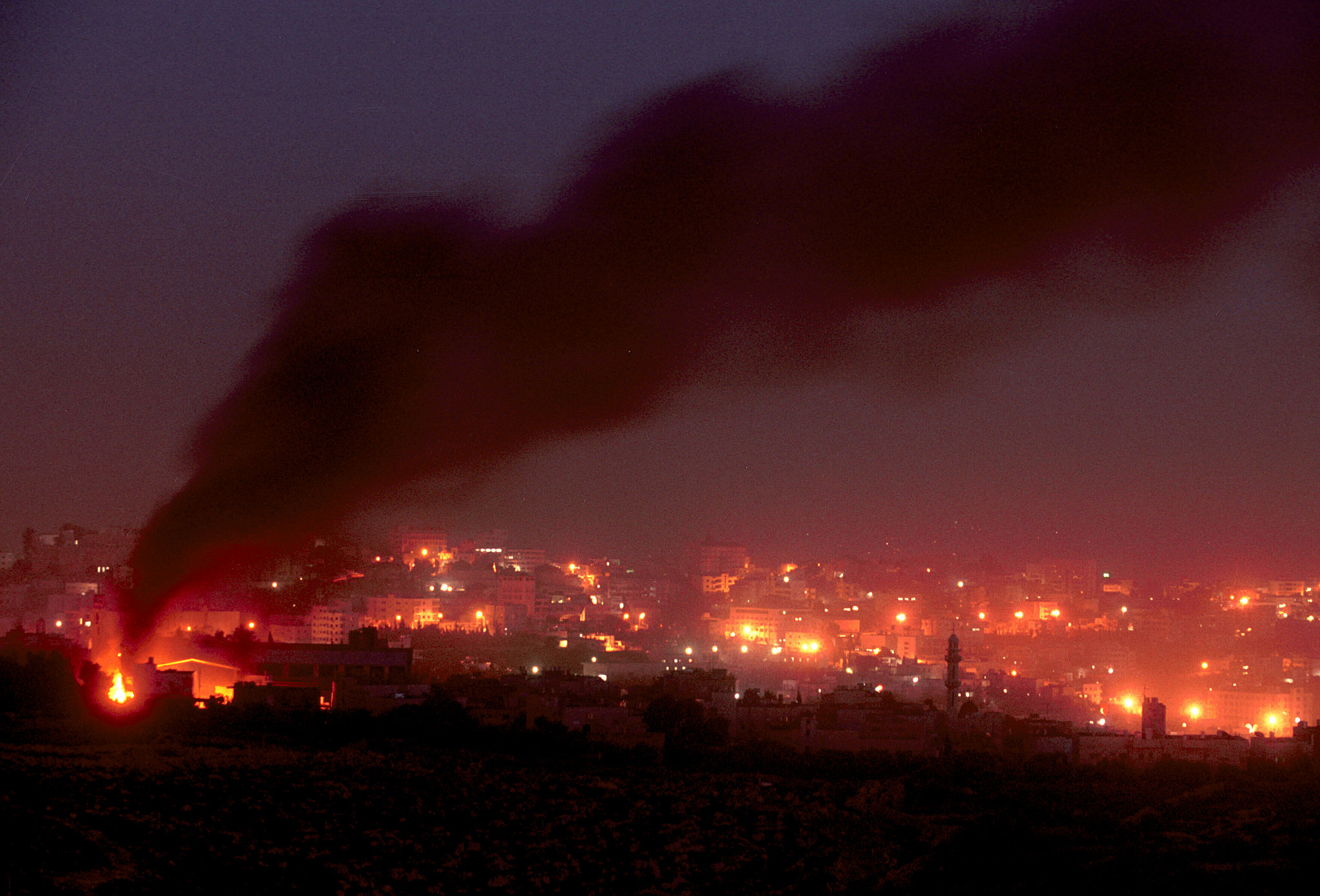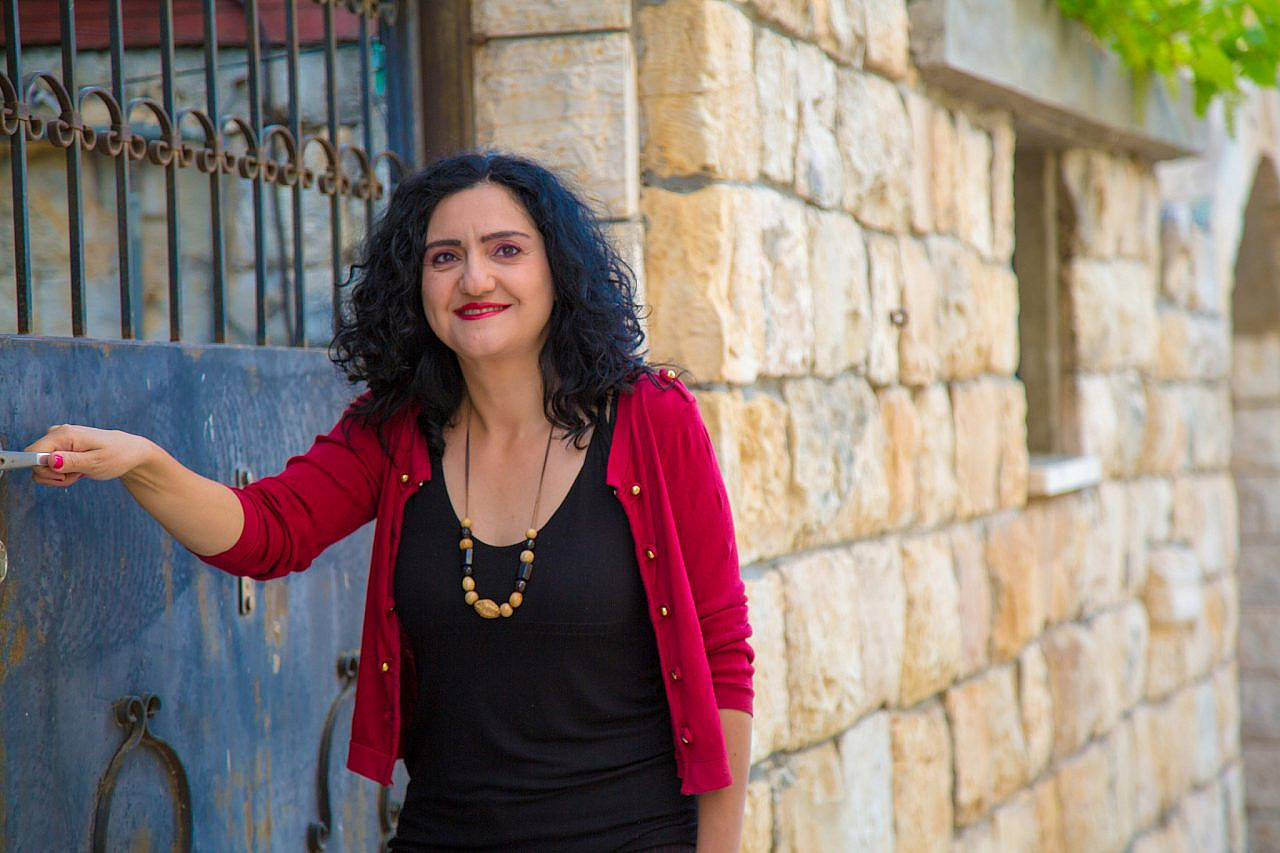My stress and agitation at Ben Gurion Airport began before its series of entry checkpoints and nerve-wracking procedures. They began with its very name. David Ben-Gurion was the founder and first prime minister of Israel, one of its pioneers of violence and racism against Palestinians and certainly not someone I wanted to remember each time I flew. But his name, and the names of the founders of Zionism and of Israel’s most notorious war generals, were given to major streets in every Israeli city.
I took a deep breath as I was pounced on by the first agent. She asked me where I was going, flicked through my passport and told me to stand in line. This line did not lead to the check-in counter. It led to security, the first stop in a series of stations. I waited for 45 minutes until it was my turn. Two more agents pounced. ‘Hello, Madam,’ said one, in Hebrew. ‘I’m here to ask you some questions for security purposes.’
Did I pack my own bags?
When did I pack them?
Did anyone give me anything to take with me?
Did I make any stops between leaving home and arriving at the airport?
Do I have firearms, ammunition or any sharp objects?
My bags then went through the scanning machines and were cleared. But, as they came out on the conveyor belt, the agents put a yellow sticker on each of them, which alerted security at the next stop. This was only done to Palestinian passengers and to some foreigners, not to Israeli Jews.
The same agents popped up again, and one of them took me aside. She opened my passport, and I almost saw her gaze fixate on my place of birth, Lebanon.
‘Where do you live?’ she asked, flicking through the pages.
‘Fassouta.’
‘Where?’ she finally looked up at me.
‘Fassouta. In the Galilee.’
‘Where in the Galilee?’
‘Near Ma’alot.’
‘How long have you lived there?’
‘Six years.’
‘And before that?’
‘Cyprus.’
‘What were you doing in Cyprus?’
‘I went to school.’
‘Your family was with you?’
‘Yes.’
‘What does your father do?’
‘He’s a lawyer.’
‘Why are you going to England?’
‘Scotland. I’m going back to university.’
‘What will you study?’
‘Business.’
‘Where?’
‘Strathclyde University.’
‘Where …?’
‘Strathclyde. In Glasgow.’
‘Do you have any papers to prove this?’
‘Yes.’ I produced my acceptance letter, which she inspected.
‘Do you still have family in Lebanon?’ I knew this would come up.
‘No.’
‘Do you have contact with anyone in Lebanon?’
‘No.’
‘You don’t have family or friends there still?’ They also repeated their questions, presumably to catch people off-guard.
‘No.’
‘When did you leave there?’
‘1983.’
‘You have no relatives or friends still living there?’
‘No. I don’t.’ I willed myself to stay calm.
‘What family do you have in Fassouta?’
‘My father, mother, and brother.’
‘You have other family there? Uncles, aunts?’
‘Yes.’
‘Why didn’t you mention them?’
I blinked. ‘I thought you were talking about my parents.’
‘Was anyone else with you in Lebanon?’
‘No.’
‘What do you do for work?’
‘I was a software tester.’
‘Where did you work?’
‘In a company in Tefen, an industrial park.’
‘What is the name of this company? Do you have their contact details?’
‘Yes.’ I produced a card, which was still in my purse. She scrutinized it and gave it back to me.
‘What did you do there?’
‘I worked as a software tester.’ As I just told you.
‘What does your father do?’
‘He’s a lawyer.’
‘And your mother?’
‘She’s at home.’
‘And your brother?’
‘A student.’
It went on and on. If I was wanted for a criminal offence, I would have been called to the police and charged, not questioned randomly at the airport. This was, supposedly, only about the safety of the flight. The other agent joined her and they began repeating the questions. I took a deep breath and said: ‘You’ve already asked me that.’
‘We just want to make sure that you haven’t forgotten anything.’
That was highly unlikely, given that we had gone over them about five times. My answers trickled down to monosyllables. Finally, the first agent said: ‘Please follow me.’
We arrived at a special search area. I was told to wait until a counter freed up. There were ten counters, at which agents were rummaging through people’s luggage. I stood and waited, looking at the expressions of those around me. The Palestinians showed silent agitation or anger; the foreigners, complete bewilderment.
Eventually, the agent beckoned me to an empty slot, where I was asked to haul my bags onto the metal table and open them. A gloved man began taking out each item, feeling it, and putting it aside. He passed a small detector around all my toiletries. Then he passed it around the inside of my bags, unzipped each pocket in them, and did the same. The bags were left empty, as they were when I had taken them out to pack the night before. My hairdryer and alarm clock were set aside for further scanning.
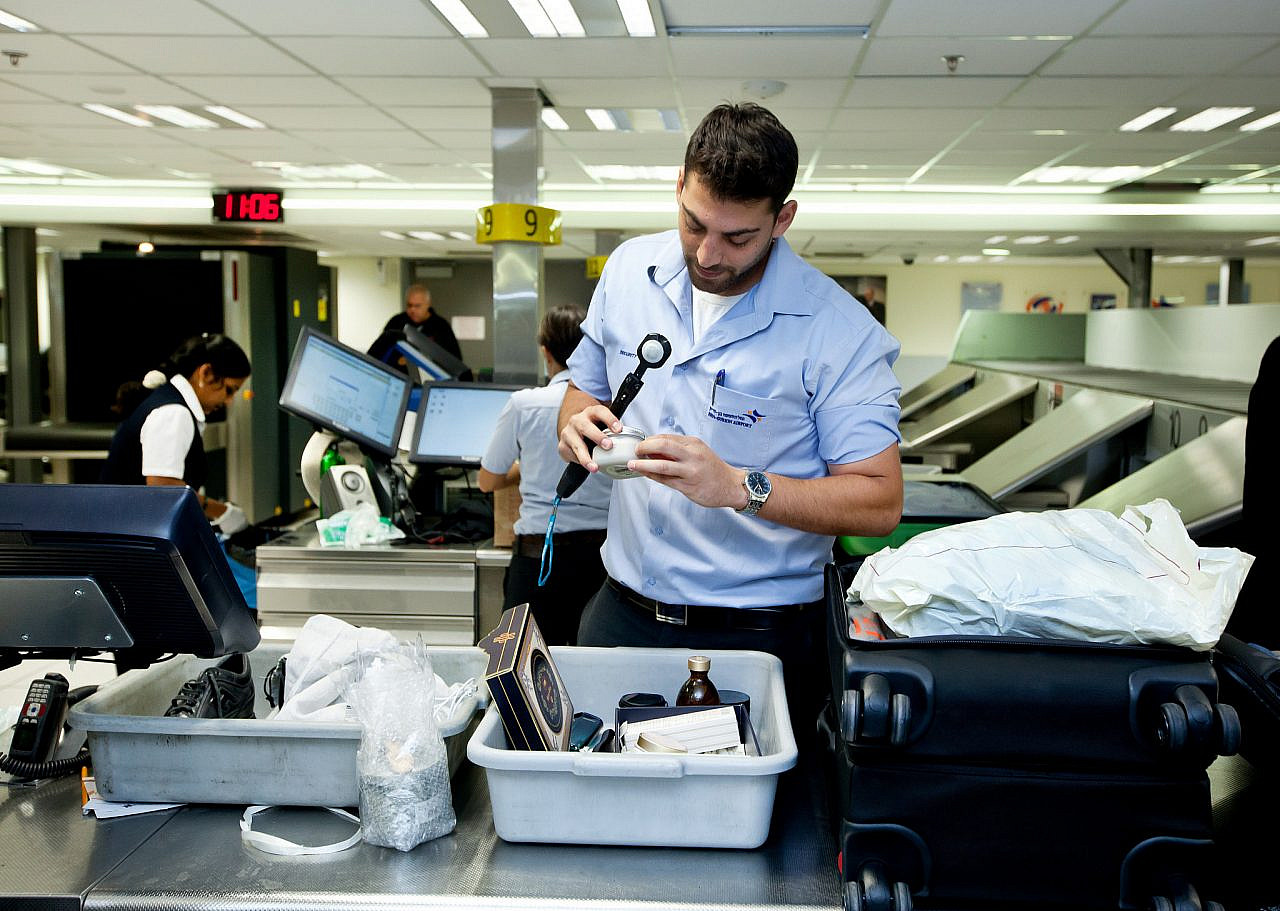
Jewish passengers sailed past on their way to the check-in counters. The agent suddenly said: ‘We want to open this, to scan it.’
‘What?’ I frowned. It was a bag of ground Arabic coffee. ‘If you open it and put detectors in it, you’ll ruin it! Might as well throw it away.’
He appeared to consider this and said: ‘OK, we’ll scan it from outside.’
‘You’re already done that,’ I snapped. But it was whisked off.
It took another twenty minutes as I sat and waited. For this reason, Palestinian passengers always came to the airport several hours before their flights. Once the agents were done, they piled my things back in the bags and asked for my help in closing them. The bag of coffee, my hairdryer and clock reappeared, with yellow stickers on them. My stuff was all jumbled; there was no time to fold and put it back properly and I began cramming it into the bags, as the gloved people watched and offered to help. But, when they touched my things, they incensed me even more. I looked up at the agent as I tried to zip up my bag, conscious of time ticking and that I really had to rush to the gate now. ‘Why do you do this?’ I demanded. It was a struggle to keep the anger from my voice.
He was taken aback for a second, then the automatic expression returned. ‘For your security, Madam.’
‘So why don’t you do it to everyone?’
‘We do.’
‘No, you don’t! You don’t do it to Jewish passengers!’
He had no answer.
As simple as that. He said nothing.
The first agent returned and escorted me to the check-in counter. She stayed with me right through to passport control and to my gate. I wanted to shop at the duty-free zone, but she was not letting me out of her sight. At the gate, I sat down to wait, and she stood a short distance away, chatting with the clerk at the desk. I got up to the vending machine to get a bottle of water. Thirty seconds later, the agent bore down on me. ‘Why did you leave your seat?’
‘To get this!’ I said, lifting the bottle.
‘Please tell me if you need anything and I will get it for you. Stay in your seat.’
Only when we were called and I gave my boarding pass to the clerk and began to walk down the passageway to the plane, did they leave me alone.
At Heathrow, before taking my transfer flight, I began to breathe more easily. I felt mildly surprised when people were nice or courteous, realizing how novel this was to me now.
I arrived in Glasgow to a snowstorm. I had forgotten the British winters. But being in a normal country lifted my spirits, filled me with joie de vivre and hope. I was appreciated as a human being, and I felt relaxed and surrounded by opportunities to thrive. My family gave me snippets of news over the phone but I was not interested. As far as I was concerned, the place had ceased to exist until I returned.
Yet, even as I dreaded the moment, the months flew by and I soon found myself on a plane back home. There was no space for a quiet transition. Six months earlier, in March 2001, Ariel Sharon had come to power as Israeli prime minister and begun his term with a military campaign in the Palestinian territory. Hamas and other Islamic factions continued their suicide attacks in Israel, which blamed Arafat and retaliated with disproportionate force against Palestinian towns and villages. Hundreds of homes were demolished; thousands of dunums of agricultural land were seized. The territory suffered frequent closures and curfews. Food and medicine ran short. Education, healthcare, and other services were heavily disrupted. The death toll was climbing at a rate five times higher among Palestinians. It was the bloodiest period of fighting since the 1948 war.
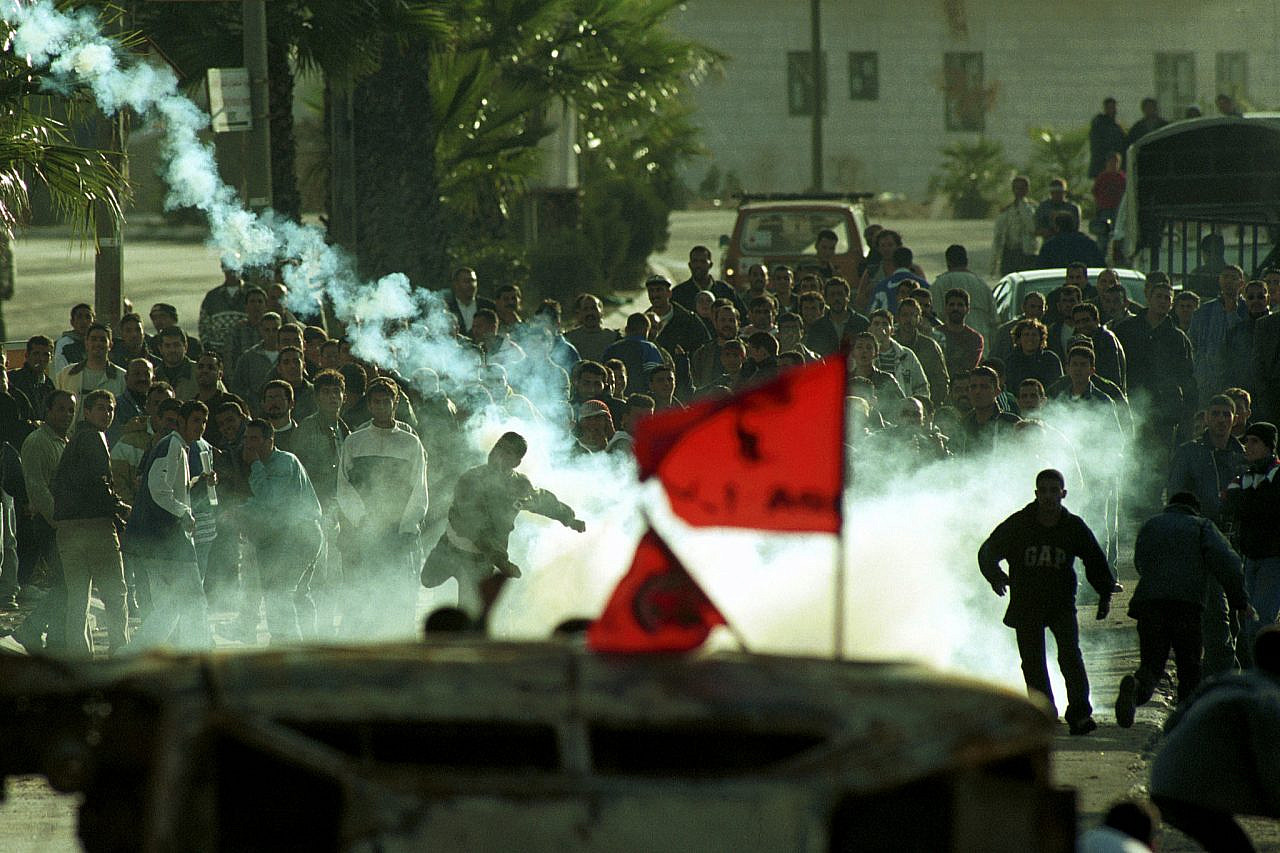
In the village, I was really depressed. I had no money and my job prospects were dismal. My father’s work also took a hit. The Israeli authorities closed a number of Palestinian institutions in East Jerusalem, chief among them the Orient House and the Palestine Research Center. They sealed the Center with red tape, with all the computers, office equipment and documents inside. The staff had just finished preparing the first reissue of Palestine Affairs when they found themselves unable to access the building. My father then went to work in Ramallah. He spent much of his time in al-Muqata’a, Arafat’s headquarters.
In December 2001, Israel announced that Arafat’s movements from Ramallah were solely at its discretion. Israeli tanks and military vehicles besieged al-Muqata’a. At Christmas, he was prevented from leaving to participate in the mass at Bethlehem, as he did every year. Two months later, Israeli helicopters fired missiles at a building in al-Muqata’a compound. In March, helicopters and naval gunships destroyed al-Muntada, Arafat’s headquarters in Gaza. He remained under siege in Ramallah.
In Israel, the atmosphere was charged with tension. I spent days on the couch. I had never felt so low or listless. I did not want to face the world or make any decisions. I did not even want to go out to the village to buy milk.
But I had to find work. My previous workplace had long filled my position and did not have any vacancies. I got up and spent every day at the computer, sending applications to any jobs I could find. For months, there was not a single response. I had hit total desperation when I saw a posting for brand managers in an online marketing company. They needed fluent English, and I got a call.
I drove to Karmiel, about an hour away, and met the marketing manager, Samantha, and her subordinate, Tom. She had immigrated from Britain a few months before. He had come from Australia. We chatted in English; they seemed impressed and asked me to start a few days later. Relief washed over me as I went home. But I prepared, mentally, for the reality of being in an Israeli workplace again.
When I started, it was worse than I thought. People were cold and unfriendly. I tried to strike up conversations with my colleagues, and a few kept their smiles, even after finding out that I was Palestinian. But most of them turned away. Groups of employees passed by every day on their way to the lunchroom. No one asked me to join them. It was as if they did not see me. When I greeted them, I got no reply. At the coffee machine, they looked at me with blank faces and turned their backs. If Tom had not spoken to me from time to time, I would have thought I was invisible.
Then, one of my teammates, a blonde girl with shining blue eyes, came up to me. Sofia was a Swede who had come to the country in her teens and married an Israeli. She was gentle and serene, and we liked each other immediately.
Karmiel was built on land confiscated from three Palestinian villages: Deir el-Assad, Bi’neh, and Nahaf. I tried to push this fact from my mind, but it popped up as I drove to the town each morning and again as I left it in the afternoon. Karmiel was touted as a model of new development. It was awarded the Beautiful Israel Prize and the Kaplan Prize for Management and Services. When it was first built, Palestinians were prohibited from living in it—my father had faced a police officer with this fact as he was being driven to exile in Safad, all those years ago. Like Upper Nazareth, Karmiel was part of the project to ‘Judaize the Galilee’, as was Ma’alot, near my village, Fassouta.
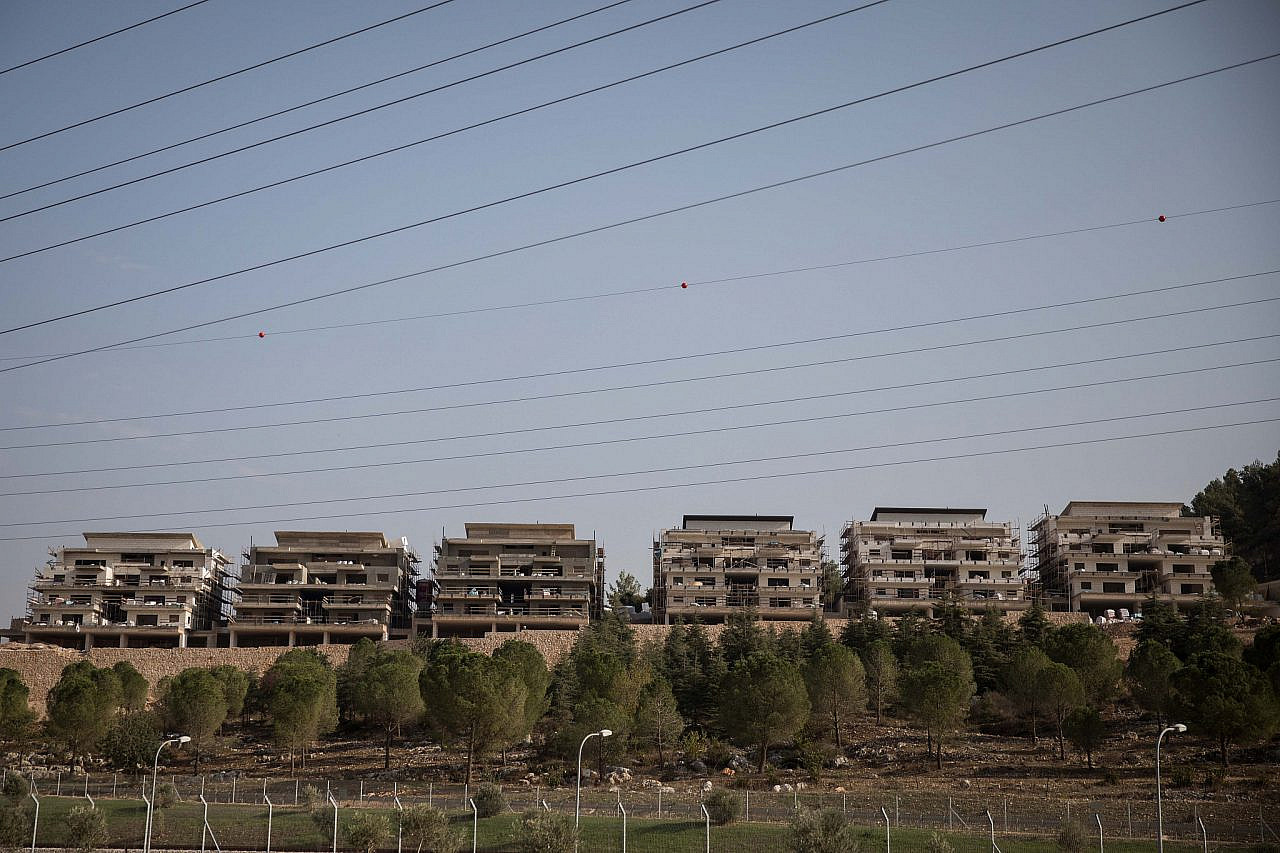
Yet, life had its own turns. All of these towns, built to be fortresses of ‘Judaization’, ended up with a quarter to a third of Palestinian residents. Young Arab couples, facing housing shortages in their own communities due to the government policy of preventing expansion, began to buy homes from their Jewish owners.
The new company where I worked was largely staffed by recent immigrants, mostly young, zealous Zionists from the United States, Canada, and Britain who had performed ‘aliyah’ to fulfill their dream of living in ‘the Jewish state’. I was amazed at how they had barely been in the country for a year, but they were already Israelis. Two weeks into the job, Samantha called me to her office. She smiled as I sat down. ‘I’m very happy with your work, Fida. I’m sure you’ll be a great asset to the team!’
‘Thanks, Samantha.’
The smile shrank a bit. ‘I just wanted to ask how things are going, personally.’
‘Sorry?’
‘I mean, do you fit in with the others? Are you feeling OK here?’
‘Yes.’ I briefly imagined telling her how I really felt.
‘I just thought this may be overwhelming for you, with the different culture …’ she continued, fiddling with her pen. ‘And I don’t want any problems to develop between people.’
I blushed. So I had been called in to discuss the ‘problem’ of my being Palestinian, I gathered. ‘It’s fine,’ I said, keeping it short.
‘I’m just aware that you may have different political views …’
I stared. This woman was British. How could she question me about this at work?
‘Samantha, I’m aware that everyone here is Israeli, and I’m also aware that people have different views. That’s fine. I’m here to work.’
To my astonishment, she launched into a political monologue, telling me that I did not appreciate their point of view, that it was important to understand that Israel’s security was always at risk, that they lived in a difficult climate and were surrounded by enemies—who seemed, I felt, to include me. I stared, open-mouthed. She was waiting for me to reply. Bristling, I answered that Israel had no qualms about maintaining its oppression of Palestinians and using violence for years with no end in sight. She looked at me pointedly and, holding her pen still, delivered her final blow.
‘But you Arabs have the concept of jihad …’
I drew a sharp breath. You Arabs?
Amazingly, she did not appear to notice. I strained to keep my voice normal. ‘Samantha, jihad is a religious concept, but in its more general, everyday use, it means to defend one’s country and people.’ An alarm bell was ringing loudly in my head that this was no topic to launch into at work!
‘Right, right,’ she said, shuffling some papers in front of her. When she looked up again, her smile was more fixed. ‘Well, good luck with the job, and let me know if you need anything!’
I nodded and walked out, tension clamping my stomach. When I returned to my desk, an instant message popped up on my screen. ‘Is everything OK?’
It was Sofia. ‘Yes,’ I messaged back. She asked if I wanted to have lunch. We walked down to the cafeteria and she introduced me to Eva, a Hungarian Jew who had immigrated and had also married a local. Eva was very funny. I laughed with them and did not mention the exchange with Samantha.
Still, they were my only small circle. Each morning, as I walked into the office and greeted the secretary, Jen, I received no reply. I found myself telling my new friends. ‘Jen will simply not talk to me. It’s embarrassing. I don’t know whether I should just walk past her and not say anything, but I can’t do that, either! She’s right at the front of the office!’
Jen was a recent immigrant from Canada. I noticed that she was very friendly and all smiles with everyone, though her Hebrew could best be described as awful. With me, she would not exchange a single word.
Eva explained. ‘You’ve created a big problem for her.’
‘What?’
‘You were educated abroad, your English is fluent, you hold a higher position than hers, you make more money than she does, and she can’t handle it. You’re not the Arab she’s been told about, the backward, illiterate savage who lives in a tent and keeps camels. She doesn’t know what box to put you in.’
The Russians, too, scowled and refused to talk to me. Fine, I thought. In time, though, I noticed that they were like that towards everyone. They stuck together at breaks, smoking and speaking their language. Their Hebrew was terrible, with a thick, heavy accent that they could not seem to get rid of. I noticed, too, that the others generally avoided them, and it was then that I felt sorry for them. They must have been going through similar feelings to mine, I thought, wondering where they had landed and how to cope with life in this frigid, forbidding place. They probably would not have come here if they had had a decent life elsewhere.
But all my sympathy was useless. During my whole year at the company, the Russians refused to speak to me. The only exception was Victor, the network administrator, who was friendly and always had time for a laugh. I liked him and occasionally walked over to his side of the building to chat.
Around us, things were getting worse. On 27 March 2002, Hamas carried out a suicide bombing at the Park Hotel in Netanya, near Tel Aviv, killing thirty Israelis and wounding 140. Two days later, Israel launched ‘Operation Defensive Shield’, a massive incursion into the West Bank with about 20,000 soldiers, 500 tanks, and dozens of fighter planes and bulldozers. In Ramallah, tanks rolled into al-Muqata’a, which had been under siege for six months. They destroyed its surrounding wall and shelled parts of the compound. Armored carriers crushed cars in their path as soldiers stormed through, and a hail of mortars and gunfire fell on Arafat’s building. The next day, dozens of foreign nationals entered al-Muqata’a in a show of solidarity. About 400 Palestinians and foreign nationals were besieged with him, amidst the intermittent shelling.
Israel redeployed its military forces in the West Bank in full, reversing the Oslo Accords and all the agreements since, and devastating the Palestinian Authority. The army invaded Palestinian cities, killing hundreds of people, arresting thousands, and destroying infrastructure. Israeli media portrayed the Palestinians as terrorists, and the damage done to them was never exposed. The army used Palestinian civilians as human shields, forcing them to knock on doors for house searches, check suspicious subjects, and stand in the lines of fire from militants. Medical teams, ambulances, journalists, and human rights workers were also attacked.

On 2 April, Israeli troops besieged the Church of the Nativity in Bethlehem, where Palestinian militants had taken refuge and some 200 monks lived. Tanks were deployed near Manger Square, opposite the church, and snipers took up positions on the roofs of surrounding buildings. They were instructed to fire at anyone they saw inside the church, using laser beams to seek out targets.
One day later, Israeli forces began a full-scale assault on Jenin refugee camp, which lasted for nine days, razing large areas and turning houses into rubble. More than fifty Palestinians were killed. Each night, I went home to watch the horrors on the news. Al Jazeera showed detailed coverage. I had headaches and nightmares. At work, I could barely focus on anything. I did not want to see or talk to anyone. I just wanted to crumple in a heap of tears.
An American colleague, Greg, sat a few desks away from me, in his Levi’s and baseball cap. He chuckled to Ted, another American: ‘We’re creaming them, man. They don’t stand a chance!’
I looked up. We worked in a large, open-space hall, and I could hear them. They had arrived in the country a few months before. I could not say anything. I remembered an incident at my previous workplace, and the climate then was nothing like what it was now.
On 9 April, it was ‘Yom HaShoah’ in Israel, the annual Remembrance Day for victims of the Holocaust. In the morning, sirens sounded throughout the country, and everyone stopped what they were doing and stood for two minutes in silence. Drivers halted, and some got out and stood on the roads. The country came to a standstill.
I was at work, staring dimly into my screen. I had barely slept all week. The killing and rampage were happening a short distance away, and I felt utterly helpless, consumed with pain and rage. At times, I could not breathe fully and had to get away from the TV, which the village and entire Palestinian population seemed to be glued to in misery.
Suddenly, a high-pitched sound broke the silence. Everyone rose to their feet. It was the memorial siren.
At that moment, I could not get up.
I just could not.
Blood rushed through my veins, my heart pounding, and I felt sick. All I saw were flashes of coverage: the blood, the mutilated bodies, the women screaming and tearing their hair, the rubble, the funerals with body after body wrapped in Palestinian flags.
My legs refused to move. I stared at my screen and felt the eyes of every person in that room boring into me. For two minutes, they stood, but I was in a trance. They sat down again and there was silence. Everyone resumed tapping their keyboards. I continued working, or staring into space, until lunch break.
‘You didn’t stand up,’ Sofia said, gently.
I looked at her. After a few moments, I found my voice. ‘They’re killing my people as we speak. As they stand to remember their dead, they’re making more of mine.’
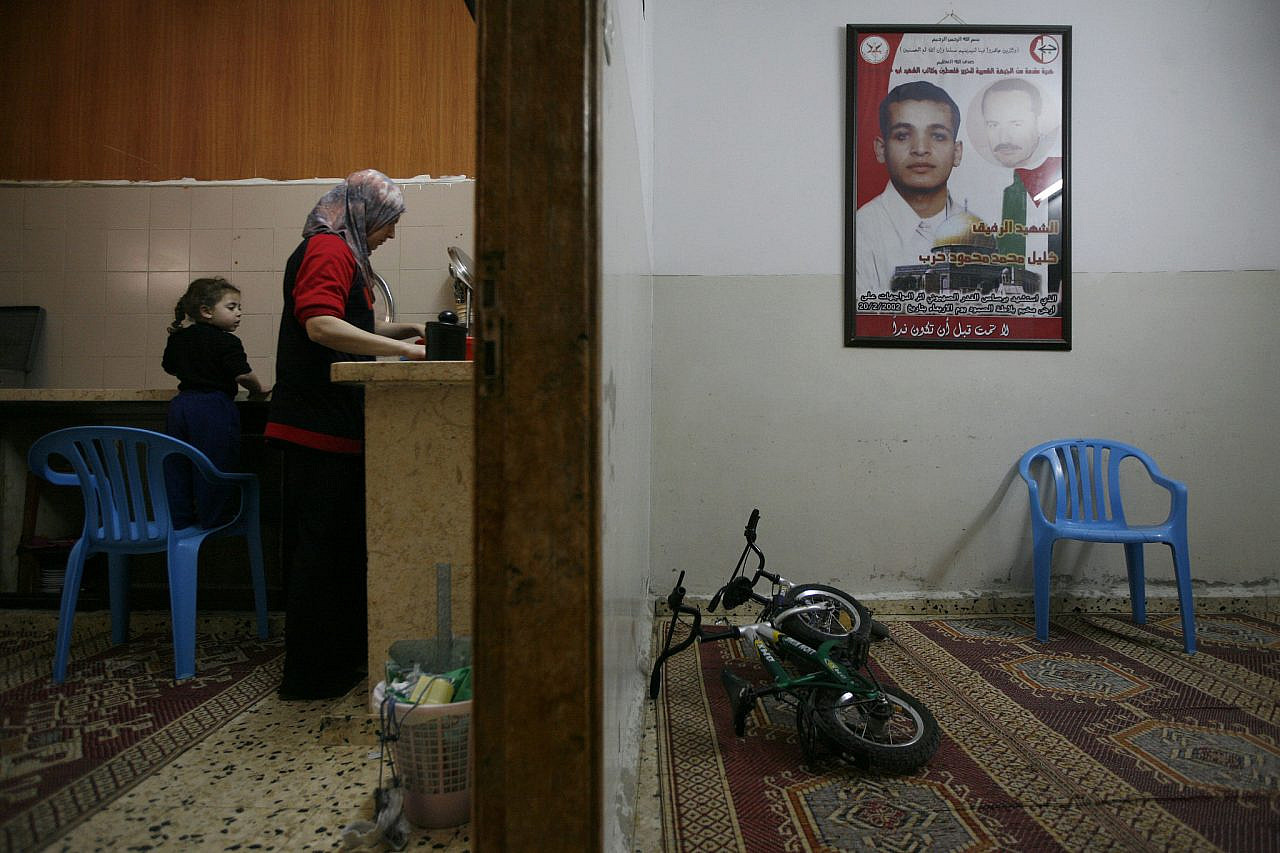
Again, there was the wall of silence. As long as we stayed away from ‘political talk’, we could pretend to maintain a civil atmosphere. My colleagues would make the odd remark and answer each other, as though I was not there. I discovered that, to the average Israeli, the Palestinians did not really exist as a people; we were a formless mob of terrorists. These immigrants were told that Israel had waged a glorious ‘war of independence’ and regained its land ‘promised’ by God to the Jewish people. The ‘Arabs’ were simply driven away and no one had to worry about them, and, anyway, ‘they had twenty-two countries they could go to’.
Even among my friends, the comments surfaced. I was always reminded, in some way or other, that the friendship could never be complete. Sofia visited me at home, once. But, when I invited Eva, she blurted out: ‘Good heavens, I can’t possibly drive to an Arab village! The streets, the chaos! How do you do it?’
In Ramallah, the campaign against Arafat intensified. He and those besieged with him suffered water and electricity cuts, shortages of food, and a lack of air due to overcrowding. The Israeli army continued to destroy the buildings of al-Muqata’a, leaving only the two where the besieged took shelter. They were encircled by tanks, pointing their guns at the windows. Finally, after international pressure, the army withdrew from the compound on 1 May. Israeli prime minister Ariel Sharon forbade Arafat from leaving the Palestinian territory unless he had no intention of returning. The cities and refugee camps of the West Bank were surrounded by Israeli troops. On 10 May, they ended their five-week siege of the Church of the Nativity, killing seven Palestinians.
Weeks later, the army invaded Ramallah, again, and attacked Arafat’s headquarters, killing one of his guards. My father was stuck in the city and could not leave for several days. Israel had designs for a much larger blockade. The government approved the construction of a separation barrier: a massive, concrete structure with trenches, barbed wire and watchtowers that ran around the West Bank.
I was at my desk, in my usual daze, when the voice of the company’s owner broke the silence. ‘Hi, guys!’
I looked up to see him in full army uniform, gun slung over his shoulder. My stomach lurched. I could not hide a fleeting spasm on my face. I looked back at my screen and continued typing.
He looked in my direction and said: ‘Sorry if I’m intimidating anyone.’
I felt myself stiffen. He stood for a few minutes and chatted with the others, then left. I was not sure if he meant to appear like that to make a point, or if it was the casual coincidence that it seemed like. It did not matter. By this point, I was seriously thinking about quitting—money be damned.
But I knew that finding another job was close to impossible.
For the first time, I told Sofia and Eva more about my life: who my father was, what had happened in Beirut, how we had ended up in Israel. They listened, trying to hide their shock. ‘I’m thinking of writing a book,’ I finished.
But Eva, whose expression had changed, looked at me and said: ‘Why, do you think your life is so interesting that people will want to read about it?’
I tried to hide the hurt I felt, taking it as the casual joke that it sounded like. They smiled and went back to their desks. From that point, I shut down and spoke as little as possible. Most of the others still seemed ill at ease in my presence, and I was tired of trying. They shuffled awkwardly when speaking to me, keeping the conversation short. Many continued to walk past me, averting their eyes and staring straight ahead.
I was surprised when an instant message popped up on my screen. It was Dave. He worked in another team and sat at the far end of the hall. He was a loner, always behind his computer, and he did not come down to the cafeteria for lunch. I knew he was American, but I had noticed that he made a concerted effort not to hang out with the others, especially Greg and Ted, who sat next to him, babbling ceaselessly. ‘Is there a “mute” button? I sure as heck could use it!’ he typed.
I grinned, and we struck up a conversation. Then we went out for coffee on the balcony. Dave was interesting, warm, and empathic. ‘I can’t connect to these people,’ he confided in me.
He had been in the country for a year, and he had a lot of questions, which I did my best to answer. Until his arrival, he told me, he had not been aware of the Palestinians in Israel, or at all. ‘I read that Arab villages face a lot of discrimination; is that true?’ he asked.
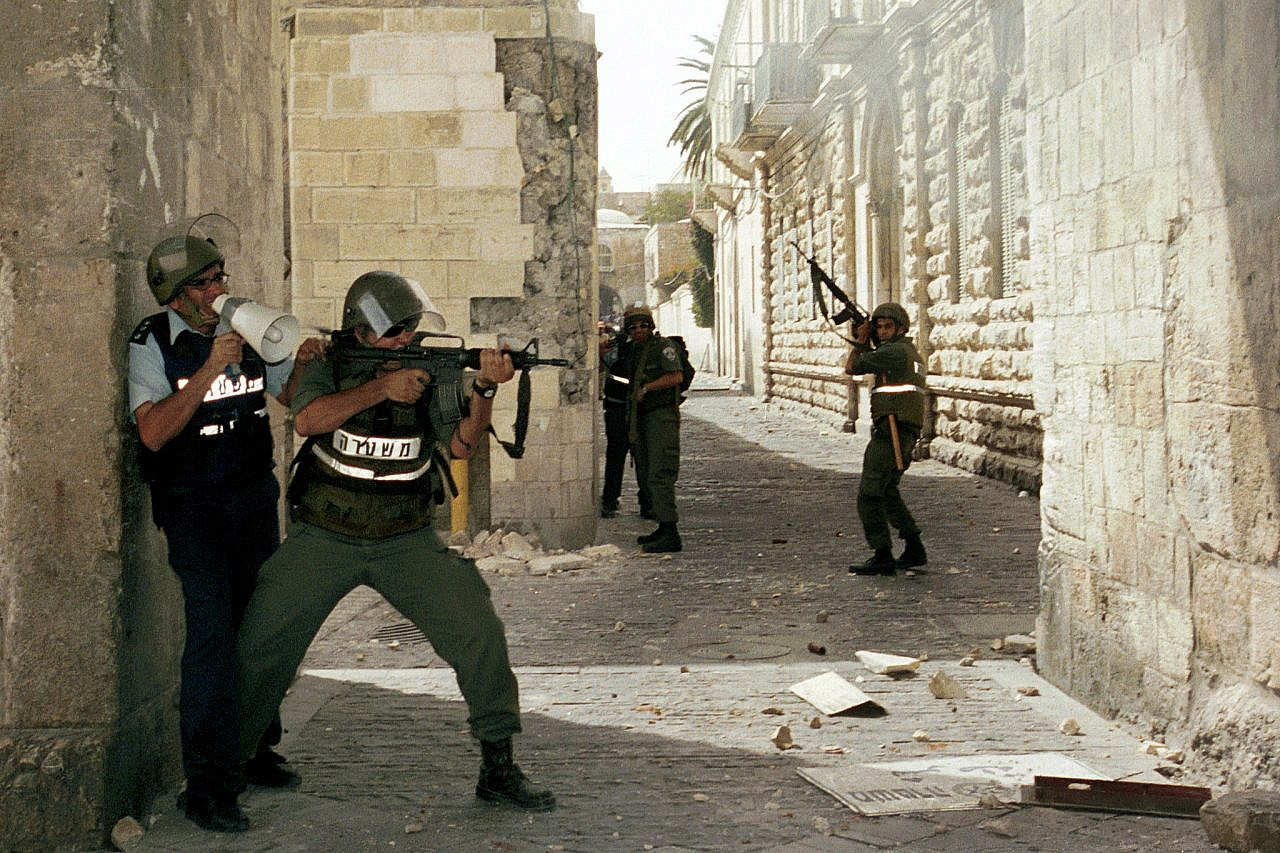
I looked at his innocent, almost childish face, at curious odds with his large frame. Then I began to tell him. It was a difficult leap for me, the first time I was talking to an Israeli who actually wanted to listen—seven years after I had come to the country. I could tell it was difficult for him, too. I had to walk a fine line; if I said too much, I felt he would recoil. We took more breaks and continued talking. It frustrated me, having to hold back and only give little snippets. It also really depressed me that people who had made the decision to immigrate simply did not know. I wanted to come out with everything, tell him the whole story, but the topic made him uncomfortable and he always said: ‘We should get back to work …’
A few weeks later, he did not come to the office. He was absent the next day, as well. I found out from Eva that he had been called to army service, and would leave work in the coming weeks.
He reappeared that afternoon, greeted us all and sat down at his desk. A while later, we went outside for our coffee and I asked him if everything was alright.
‘Yes, Fida. But I couldn’t come to work yesterday. I found out that I had been called to service, and I was worried that you’d be upset. I didn’t know what to tell you.’
I was stunned. I told him it was fine, that he should do what he had to do. But the words were sour in my mouth, even as I was moved by his thoughtfulness.
The army and security apparatus were Israel’s mania—they could not be questioned or criticized. Every newscast seemed to have some mention of the army. There were army radio channels. Military trucks and jeeps intermingled with traffic. The army provided study loans and careers. For Jews, refusing to serve meant being ostracized in society. Some became depressed and left their service. There were cases of suicide. There were also those who would not serve, on principle, but they were few. In a system that viewed army performance as a precondition for all personal progress, those refusers were punished by the state. They were often imprisoned, and they could lose their study loans and be refused employment. They also faced a social stigma, even from family and friends. Dave was clearly not up to it, this eager newcomer with shining eyes and burning idealism. He wanted to make a good start to his life in the country. I did not judge him, but I could not help feeling alienated. A chasm opened up between us, and, eventually, the friendship petered out.
The Israeli rampage in the Palestinian territory crushed Arafat’s efforts to declare a unilateral ceasefire. On 19 September 2002, after another suicide bombing in Tel Aviv, the Israeli army laid siege to al-Muqata’a for the third time and largely demolished it. Arafat refused an order to hand over twenty Palestinians who were inside, and a rumor spread that the army would storm his office. Thousands of Palestinians broke the imposed curfew and poured out towards his headquarters. The army opened fire, killing two and wounding dozens, but the protests spread to other Palestinian towns and refugee camps. Ten days later, the tanks and bulldozers rolled away, leaving only one building of the large compound standing: the block housing Arafat’s office, where he and his aides were confined, in tough conditions, on the second floor.
Greg and Ted kept talking about ‘battering them’ and gleefully boasting of Israel’s ‘victories’. Other employees were silent or muttered a few bits of news to each other in somber tones. Things were so tense they were like a taut wire about to snap. I was having lunch in the cafeteria, sitting at the end of a long table that we all shared, when my ears picked up a heated discussion taking place further down. It became louder and more intense. Suddenly, one of the girls snapped: ‘I think our government is making a huge mistake!’
Everyone paused. All eyes turned to her.
‘I think we should go in there and blitz everything,’ she said. ‘Everything. People, cats, dogs, trees, the air! Just wipe the entire area clean. That will solve the problem!’
Dave was sitting right there. He did not say a word.
Excerpt from “Stranger in My Own Land,” by Fida Jiryis. A Tel Aviv book launch will be held on Dec. 12, 2022, 8:00 p.m., at House of Solidarity, 9 Jaffa Road, hosted by Zochrot and ex-MK Sami Abu Shehadeh. All are welcome.

